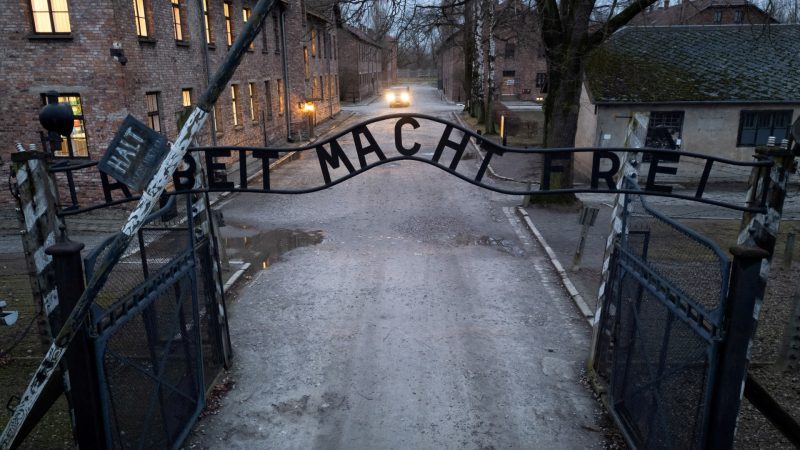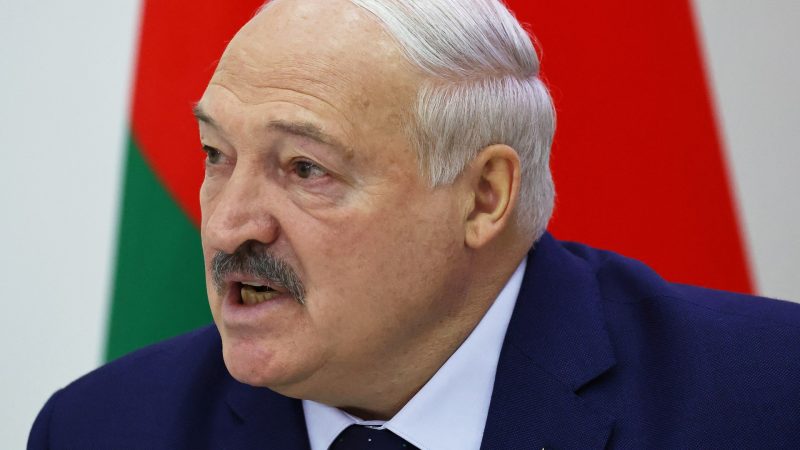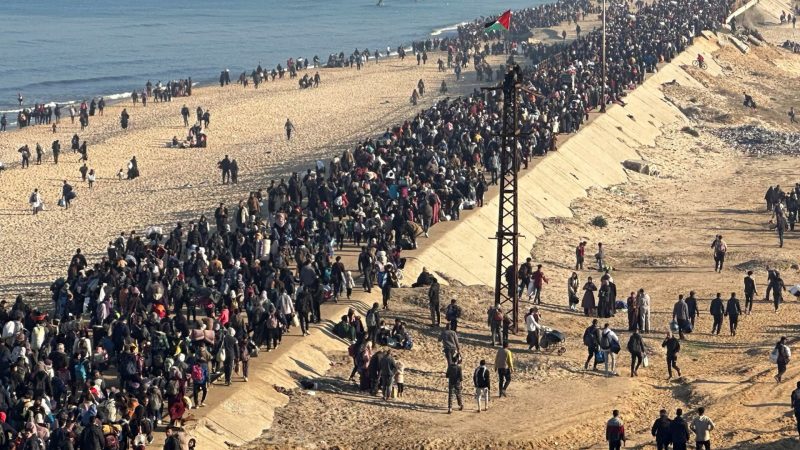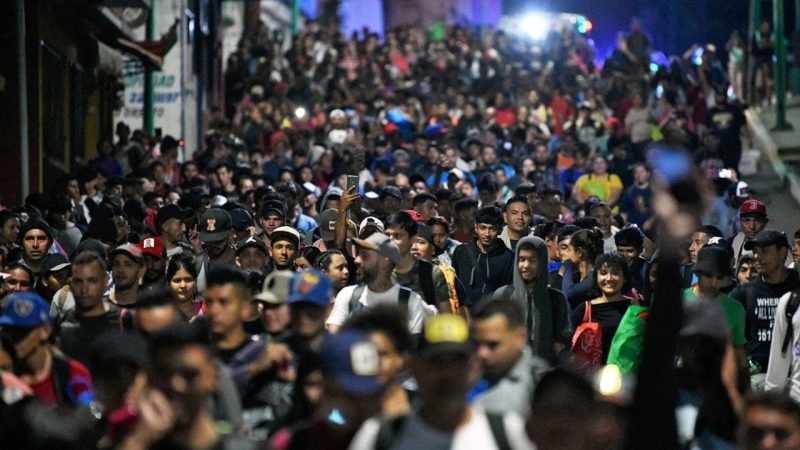Denmark struggles to stay calm in crisis over Trump threat to take Greenland
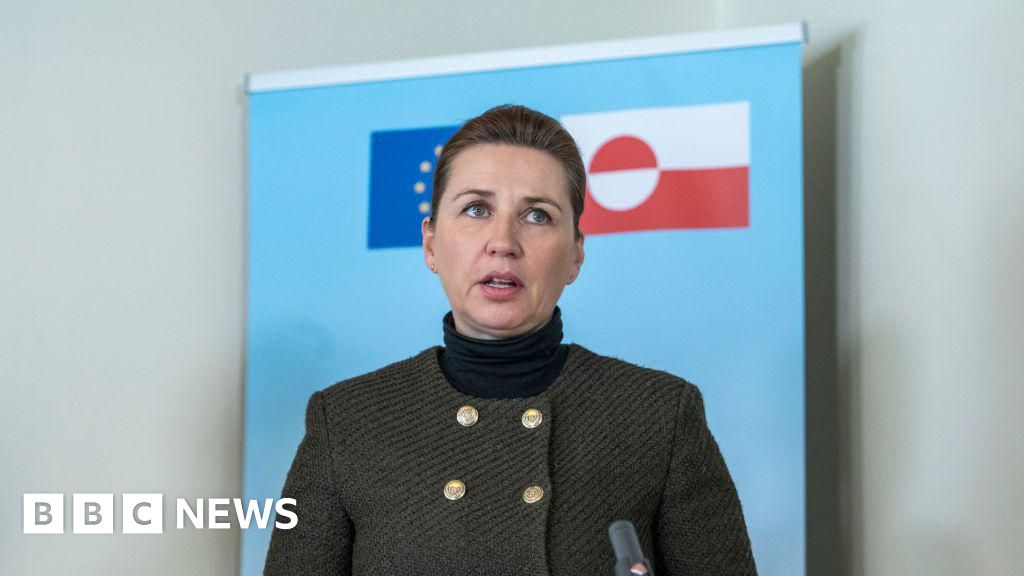
[ad_1]
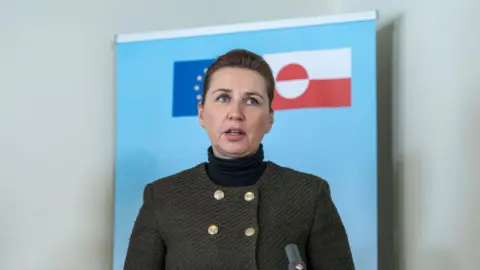 Getty Images
Getty ImagesCopenhagen’s gloomy January weather matches the mood among Denmark’s politicians and business leaders.
“We take this situation very, very seriously,” said Foreign Minister Lars Løkke Rasmussen of Donald Trump’s threats to acquire Greenland – and punish Denmark with high tariffs if it stands in the way.
But, he added, the government had “no ambition whatsoever to escalate some war of words.”
Prime Minister Mette Frederiksen downplayed Trump’s own suggestion that the US might use military force to seize Greenland. “I don’t have the fantasy to imagine that it’ll ever get to that,” she told Danish TV.
And Lars Sandahl Sorensen, CEO of Danish Industry, also said there was “every reason to stay calm… no-one has any interest in a trade war.”
But behind the scenes, hastily organised high-level meetings have been taking place in Copenhagen all week, a reflection of the shock caused by Trump’s remarks.
Greenland PM Mute Egede flew in to meet both the prime minister and King Frederik X on Wednesday.
And on Thursday night, party leaders from across the political spectrum gathered for an extraordinary meeting on the crisis with Mette Frederiksen in Denmark’s parliament.
Faced with what many in Denmark are calling Trump’s “provocation,” Frederiksen has broadly attempted to strike a conciliatory tone, repeatedly referring to the US as “Denmark’s closest partner”.
 AFP
AFPIt was “only natural” that the US was preoccupied by the Arctic and Greenland, she added.
Yet she also said that any decision on Greenland’s future should be up to its people alone: “Greenland belongs to the Greenlanders… and it’s the Greenlanders themselves who have to define their future.”
Her cautious approach is twofold.
On the one hand, Frederiksen is keen to avoid escalating the situation. She’s been burned before, in 2019, when Trump cancelled a trip to Denmark after she said his proposal to buy Greenland was “absurd”.
“Back then he only had one more year in office, then things went back to normal,” veteran political journalist Erik Holstein told the BBC . “But maybe this is the new normal.”
But Frederiksen’s comments also speak to the Danish resolve not to meddle in the internal affairs of Greenland – an autonomous territory with its own parliament and whose population is increasingly leaning towards independence.
“She should’ve been much clearer in rejecting the idea,” said opposition MP Rasmus Jarlov.
“This level of disrespect from the coming US president towards very, very loyal allies and friends is record-setting,” he told the BBC, although he admitted Trump’s forcefulness had “surprised everybody.”
The conservative MP believed Frederiksen’s insistence that “only Greenland… can decide and define Greenland’s future” placed too much pressure on the island’s inhabitants. “It would’ve been prudent and clever to stand behind Greenland and just clearly state that Denmark doesn’t want [a US takeover].”
 AFP
AFPThe Greenland question is a delicate one for Denmark, whose prime minister officially apologised only recently for spearheading a 1950s social experiment which saw Inuit children removed from their families to be re-educated as “model Danes”.
Last week, Greenland’s leader said the territory should free itself from “the shackles of colonialism.”
By doing so he tapped into growing nationalist sentiment, fuelled by interest among Greenland’s younger generations in the indigenous culture and history of the Inuit.
Most commentators now expect a successful independence referendum in the near future. While for many it would be seen as a victory, it could also usher in a new set of problems, as 60% of Greenland’s economy is dependent on Denmark.
An independent Greenland “would need to make choices,” said Karsten Honge. The Social Democrat MP now fears his preferred option of a new Commonwealth-style pact “based on equality and democracy” is unlikely to come about.
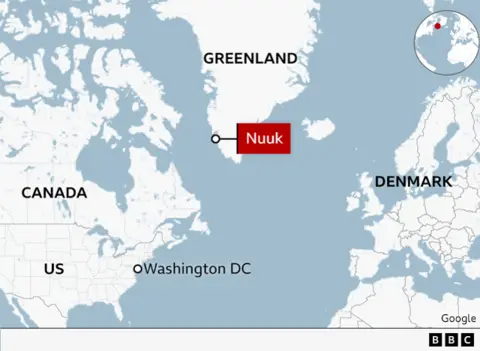
Sitting in his parliamentary office decorated with poems and drawings depicting scenes of Inuit life, Honge said Greenland would need to decide “how much it values independence”. It could sever ties with Denmark and turn to the US, Honge said, “but if you treasure independence then that doesn’t make sense.”
Opposition MP Jarlov argues that while there is no point in forcing Greenland to be part of Denmark, “it is very close to being an independent country already”.
Its capital Nuuk is self-governed, but relies on Copenhagen for management of currency, foreign relations and defence – as well as substantial subsidies.
“Greenland today has more independence than Denmark has from the EU,” Jarlov added. “So I hope they think things through.”
As Mette Frederiksen has the awkward task of responding firmly while not offending Greenland or the US, the staunchest rebuttal to Trump’s comments so far has come from outside Denmark.
The principle of the inviolability of borders “applies to every country… no matter whether it’s a very small one or a very powerful one,” German Chancellor Olaf Scholz warned, while French Foreign Minister Jean-Noël Barrot said the EU would not let other nations “attack its sovereign borders”.
Their comments gave away the deep concern within the EU about how to handle the upcoming Trump presidency. “This is not just very serious for Greenland and Denmark – it is serious to the whole world and to Europe as a whole,” MP Karsten Honge said.
“Imagine a world – which we may be facing in just a few weeks – where international agreements don’t exist. That would shake everything up, and Denmark would just be a small part of it.”
The Danish trade sector has similarly been engulfed by deep nervousness after Trump said he would “tariff Denmark at a very high level” if it refused to give up Greenland to the US.
A 2024 Danish Industry study showed that Denmark’s GDP would fall by three points if the US imposed 10% tariffs on imports from the EU to the US as part of a global trade war.
Singling out Danish products from the influx of EU goods would be near-impossible for the US, and would almost certainly result in retaliatory measures from the EU. But trade industry professionals are taking few chances, and in Denmark as elsewhere on the continent huge amounts of resources are being spent internally to plan for potential outcomes of Donald Trump’s second term in the White House.
As his inauguration approaches, Danes are preparing as they can to weather the storm. There is guarded hope that the president-elect could soon shift his focus to grievances towards other EU partners, and that the Greenland question could be temporarily shelved.
But the disquiet brought on by Trump’s refusal to rule out military intervention to seize Greenland remains.
Karsten Honge said Denmark would have suffer whatever decision the US takes.
“They just need to send a small battleship to travel down the Greenland coast and send a polite letter to Denmark,” he said, only partly in jest.
“The last sentence would be: well, Denmark, what you gonna do about it?
“That’s the new reality with regards to Trump.”
[ad_2]
Source link


